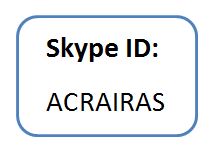Business Accounting for Singapore Startups
Have you founded a company in Singapore and you want to set up your accounting system? First, you must be aware of the Singapore Accounting Standards. Although the accounting standards are almost similar internationally, there are some variations in different countries and Singapore is one of them.
Startup accounting can be daunting. Many business founders are very scared of accounting. However, although it is hard, it is not impossible.
Move to cloud computing to save time. You will get accounting templates. These are very easy to use, even for people with no prior knowledge of bookkeeping or accounting programs.
Accounting revolves around three fundamentals –
(1) business must have expenses;
(2) must have income; and
(3) a budget!
Few guidelines to create a ledger for new start-up accounting of businesses
- The very first part of the ledger should include the recurring or running expenditures of the business. For example, rent, wages, and utility payments, supplies and other similar expenditures should be included.
- You will need to create a column for the costs that the business is going to incur even before it starts running. These include costs like product testing, research and others. How much of the startup expenditure can be offset from the first year’s income? Any higher value than that for startup expenditure will be amortized.
- The company will have depreciable expenses. These include expensive machinery and equipment that will depreciate with time. A new business will have to buy new equipment that will depreciate over time. The accountant will write off the depreciation of these equipment over the years rather than all at once.
- The ledger for startup accounting will not be complete without the income columns. How does the business generate its revenue? Does the company offer products and services, say, like a cleaning company that will offer the cleaning services and sell cleaning products as well? Create columns for each. After every transaction, the books (debit and credit) should be balanced.
Now that you have seen how to create a ledger, what other things related to startup accounting do you need to know? Here are a few of them:
What are the functions of accounting? Accounts Receivable and Accounts Payable
How much does the business owe the suppliers and other debtors? Put simply, this is about accounts receivable and accounts payable that must be entered in the ledger. They help one keep track of the cash flow in and out of the business. The cashflow statement should be able to tell whether a company is profitable.
Additional financing
In time, the startup business will require additional financing to help it meet its expansion goals. In that case, financiers will require to see the past three years financial records and cashflow statements.
Know the financial health of the business
A company has to keep track of its revenue generation and expenditure to know its stand in finances. For example, if there are indications of high income to debt ratio, then some expenditure needs to be cut.
Know the importance of accounting
Accounting helps a business to know where it stands money-wise. For example, if the income to debt ratio is too high, especially if this does not include the startup loan, then the company may even have to lay off some people to reduce the wage expenditure.
You have now seen the importance of startup accounting. Money is the lifeblood of any business, big or small and the only way to track how the money is generated and spent is by setting up a proper accounting system.
Business Owners, if you are a new start-up firm looking for professional business accounting help for your company, J Accounting Services do offer you with that. Visit them today, or Contact J Accounting Services directly!




